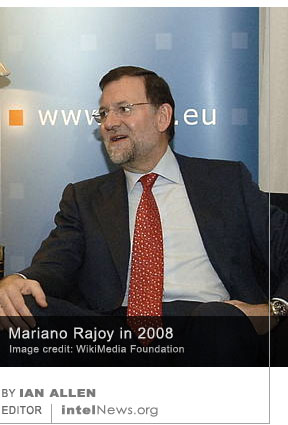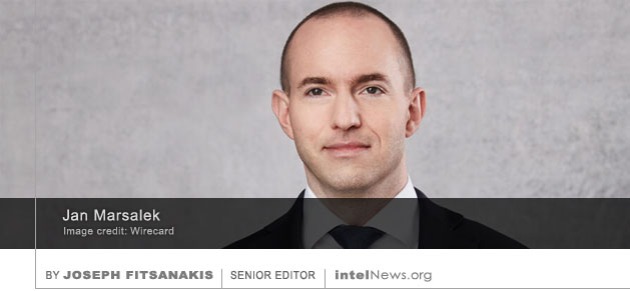Separate investigations focus on ex-FBI special agent’s Russian and Albanian ties
January 25, 2023 1 Comment
 AUTHORITIES IN THE UNITED States have launched at least two separate investigations into the business dealings of Charles McGonigal, the highest-ranking former employee of the Federal Bureau of Investigation (FBI) to face criminal charges in recent times. Much has been written about McGonigal’s alleged connection with Kremlin-linked Russian billionaire Oleg Deripaska. On the contrary, relatively little is known about his purported dealings with Albanian and other Balkan officials and middlemen, some of whom appear to have intelligence links. There is also the question of whether the criminal charges against McGonigal and his alleged co-conspirator, former Soviet and Russian diplomat Sergey Shestakov, are strictly financial in nature, or may eventually expand to include an espionage angle.
AUTHORITIES IN THE UNITED States have launched at least two separate investigations into the business dealings of Charles McGonigal, the highest-ranking former employee of the Federal Bureau of Investigation (FBI) to face criminal charges in recent times. Much has been written about McGonigal’s alleged connection with Kremlin-linked Russian billionaire Oleg Deripaska. On the contrary, relatively little is known about his purported dealings with Albanian and other Balkan officials and middlemen, some of whom appear to have intelligence links. There is also the question of whether the criminal charges against McGonigal and his alleged co-conspirator, former Soviet and Russian diplomat Sergey Shestakov, are strictly financial in nature, or may eventually expand to include an espionage angle.
McGonigal, 54, retired in 2018 after a 22-year career at the FBI, during which he served as head of counterintelligence in New York, home of one of the Bureau’s largest field offices. He was arrested on Saturday in New York, upon returning to the United States from a trip to Sri Lanka. He faces charges of conspiring with Shestakov, a naturalized US citizen, to provide under-the-table services to Deripaska. The latter is among a long list of Kremlin-linked oligarchs, who have been subject to strict US sanctions since 2018. In working for Deripaska, McGonigal is accused in the state of New York of violating US government sanctions and engaging in money laundering, among five other charges.
However, the former FBI special agent is facing nine more charges in Washington, which involve illicit activities that he allegedly engaged in while still serving in the FBI. This is in contrast with his business relationship with Deripaska, which he is believed to have entered after his retirement from the Bureau. According to the indictment, McGonigal received in excess of $225,000 from an Albanian-born American businessman, who is also a former employee of Albanian intelligence. In return, McGonigal allegedly helped promote the businessman’s interests in the US and abroad. Throughout that time, McGonigal reportedly failed to disclose his alleged financial links with the businessman, as is required of all FBI employees. Read more of this post
 PROSECUTORS IN FRANCE HAVE asked for a trial in a high-profile case involving the former head of France’s domestic intelligence agency, a former senior Paris police official and a retired appeals court judge, among others. The decade-long case has become known in France as the “Squarcini affair”, after Bernard Squarcini, who headed France’s General Directorate for Internal Security (DGSI) from 2008 to 2012.
PROSECUTORS IN FRANCE HAVE asked for a trial in a high-profile case involving the former head of France’s domestic intelligence agency, a former senior Paris police official and a retired appeals court judge, among others. The decade-long case has become known in France as the “Squarcini affair”, after Bernard Squarcini, who headed France’s General Directorate for Internal Security (DGSI) from 2008 to 2012. THE CRIMINAL CORRUPTION SCANDAL known as Qatargate, which has rocked the European Parliament in recent weeks, involves covert influence operations by Moroccan spies, in addition to Qatari intelligence operatives, according to news reports.
THE CRIMINAL CORRUPTION SCANDAL known as Qatargate, which has rocked the European Parliament in recent weeks, involves covert influence operations by Moroccan spies, in addition to Qatari intelligence operatives, according to news reports. A WEALTHY BUSINESSMAN AND close ally of Venezuelan President Nicolás Maduro, who is being tried in the United States on money-laundering charges, was a “law enforcement source” for the Drug Enforcement Administration, according to documents unsealed this week in a Florida court. The businessman, Alex Nain Saab Moran, 51, comes from a Colombian family of Lebanese descent. For the past decade, he has been one of a number of international investors who have done extensive business with the government of Venezuela.
A WEALTHY BUSINESSMAN AND close ally of Venezuelan President Nicolás Maduro, who is being tried in the United States on money-laundering charges, was a “law enforcement source” for the Drug Enforcement Administration, according to documents unsealed this week in a Florida court. The businessman, Alex Nain Saab Moran, 51, comes from a Colombian family of Lebanese descent. For the past decade, he has been one of a number of international investors who have done extensive business with the government of Venezuela. SPAIN’S FORMER PRIME MINISTER, Mariano Rajoy, has denied knowledge of an alleged spy operation that prosecutors say is connected to one of the most extensive corruption scandals in Spanish political history. The alleged spy scandal relates to what is known in Spain as the
SPAIN’S FORMER PRIME MINISTER, Mariano Rajoy, has denied knowledge of an alleged spy operation that prosecutors say is connected to one of the most extensive corruption scandals in Spanish political history. The alleged spy scandal relates to what is known in Spain as the  AUDIO RECORDINGS RELEASED LAST week appear to show Peru’s imprisoned former spy chief, Vladimiro Montesinos, trying to organize bribes for judges in an effort to alter the outcome of the recent presidential election. From 1990 to 2000, Montesinos headed Peru’s intelligence service, Servicio de Inteligencia Nacional (SIN). He worked in close cooperation with his political patron, Alberto Fujimori, who is currently serving a lengthy prison sentence for corruption and human-rights abuses. Like his boss, Montesinos is currently serving a 25-year prison sentence for setting up a sophisticated network of illegal activities during his SIN tenure. The crimes he committed include drug trafficking, bribing, extortion, as well as embezzlement.
AUDIO RECORDINGS RELEASED LAST week appear to show Peru’s imprisoned former spy chief, Vladimiro Montesinos, trying to organize bribes for judges in an effort to alter the outcome of the recent presidential election. From 1990 to 2000, Montesinos headed Peru’s intelligence service, Servicio de Inteligencia Nacional (SIN). He worked in close cooperation with his political patron, Alberto Fujimori, who is currently serving a lengthy prison sentence for corruption and human-rights abuses. Like his boss, Montesinos is currently serving a 25-year prison sentence for setting up a sophisticated network of illegal activities during his SIN tenure. The crimes he committed include drug trafficking, bribing, extortion, as well as embezzlement.
 A JOINT INVESTIGATION BY Maltese and British reporters has found alleged loopholes that allow wealthy individuals from the Middle East, Asia and elsewhere to acquire European Union passports with minimum effort, in exchange for cash. The investigation concerns the so-called “cash for passports” scheme, which was launched by the government of Malta in 2014.
A JOINT INVESTIGATION BY Maltese and British reporters has found alleged loopholes that allow wealthy individuals from the Middle East, Asia and elsewhere to acquire European Union passports with minimum effort, in exchange for cash. The investigation concerns the so-called “cash for passports” scheme, which was launched by the government of Malta in 2014. A former deputy director of South Korea’s spy agency has been given a prison sentence for diverting funds from the agency’s clandestine operations budget, in order to aid South Korea’s disgraced former President, Lee Myung-bak, who has himself been sentenced to 15 years in prison.
A former deputy director of South Korea’s spy agency has been given a prison sentence for diverting funds from the agency’s clandestine operations budget, in order to aid South Korea’s disgraced former President, Lee Myung-bak, who has himself been sentenced to 15 years in prison. A court in Spain has begun to examine the findings of a long-running probe into an illegal network that spied on people in return for payments, which almost certainly implicates senior figures in the former governing party. The probe focuses on what is known in Spain as the Gürtel case, which is described by observers as one of the most extensive corruption scandals in Spanish political history. It centers on an extensive network of tax evasion, bribery and money laundering, which brought together leading business executives, criminal kingpins, and senior politicians from Spain’s conservative Popular Party (PP).
A court in Spain has begun to examine the findings of a long-running probe into an illegal network that spied on people in return for payments, which almost certainly implicates senior figures in the former governing party. The probe focuses on what is known in Spain as the Gürtel case, which is described by observers as one of the most extensive corruption scandals in Spanish political history. It centers on an extensive network of tax evasion, bribery and money laundering, which brought together leading business executives, criminal kingpins, and senior politicians from Spain’s conservative Popular Party (PP). French media have released new information on a puzzling murder conspiracy by three operations officers in France’s external intelligence agency, who planned to kill a middle-aged woman in Paris. As intelNews
French media have released new information on a puzzling murder conspiracy by three operations officers in France’s external intelligence agency, who planned to kill a middle-aged woman in Paris. As intelNews  The Paris prosecutor has charged three officers of France’s external spy agency with a mysterious plot to kill a woman, after two of them were caught driving a stolen vehicle and in possession of weapons. The three men are reportedly operations officers in the Directorate-General for External Security, known as DGSE. The service operates as France’s equivalent of the United States Central Intelligence Agency (CIA). Like the CIA, the DGSE is not permitted to carry out operations inside France.
The Paris prosecutor has charged three officers of France’s external spy agency with a mysterious plot to kill a woman, after two of them were caught driving a stolen vehicle and in possession of weapons. The three men are reportedly operations officers in the Directorate-General for External Security, known as DGSE. The service operates as France’s equivalent of the United States Central Intelligence Agency (CIA). Like the CIA, the DGSE is not permitted to carry out operations inside France. An Austrian financier, who disappeared following the outbreak of a massive financial scandal in Germany last month, and is wanted by several Western spy agencies, is reportedly hiding under Russian protection. The financier, Jan Marsalek, dubbed by some as “the world’s most wanted man”, is connected with the sudden collapse of Wirecard AG in Germany last month.
An Austrian financier, who disappeared following the outbreak of a massive financial scandal in Germany last month, and is wanted by several Western spy agencies, is reportedly hiding under Russian protection. The financier, Jan Marsalek, dubbed by some as “the world’s most wanted man”, is connected with the sudden collapse of Wirecard AG in Germany last month. The former chief executive of Danske Bank’s subsidiary in Estonia, which is implicated in a massive money laundering scheme, has been found dead in an apparent suicide in Tallinn. Aivar Rehe, 56, headed the Estonian subsidiary of the Copenhagen-based Danske Bank, one of Northern Europe’s largest retail banks, which was founded in 1871. He belonged to a group of dynamic young entrepreneurs who spearheaded the privatization of the Estonian economy in the post-Soviet era.
The former chief executive of Danske Bank’s subsidiary in Estonia, which is implicated in a massive money laundering scheme, has been found dead in an apparent suicide in Tallinn. Aivar Rehe, 56, headed the Estonian subsidiary of the Copenhagen-based Danske Bank, one of Northern Europe’s largest retail banks, which was founded in 1871. He belonged to a group of dynamic young entrepreneurs who spearheaded the privatization of the Estonian economy in the post-Soviet era.





